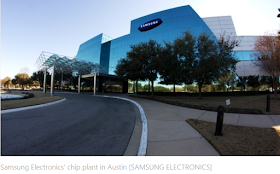Hyundai Mobis has released its Hyundai Mobis M.VISION POP concept mode. (click on the graphic for a full size version). As reported by The Korea Times, the technology used in this vehicle is set to be commercialized within five years. The report noted that "The vehicle's four wheels can be steered independently, even turning them 180 degrees, capable of moving sideways just like a crab," Hyundai Mobis said. "When linked with a smartphone, it personalizes the car settings through a digital display. For example, it detects when the driver is drowsy and moves the steering wheel to the passenger seat." The report further noted that "The key description for the M.Vision POP is "PHOBILITY," a word that combines "phone" and "mobility." It has embedded a new technology that docks the smartphone on the steering wheel with the user able to steer the vehicle using the device."







